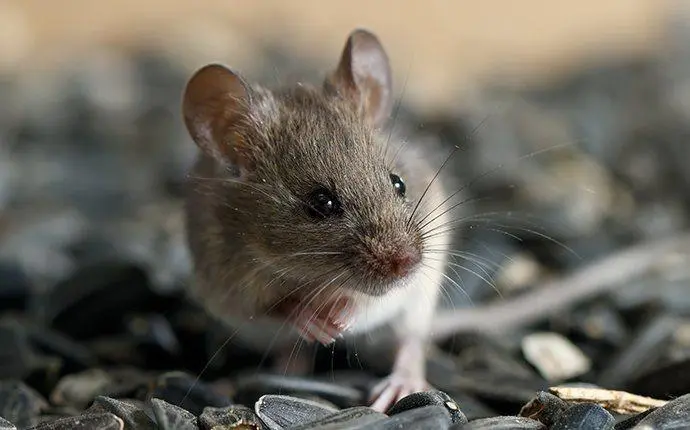
Rodents are a major problem just about everywhere on Earth. However, here in Raleigh, we’ve got the added complication of long, hard winters to contend with.
Rats and mice don’t typically hibernate. That means they’ve got to feed themselves and shelter themselves all winter long. When the snow falls and the temperatures drop below freezing, this becomes almost impossible for many rodents without relying on human habitations.
Rats and mice take advantage of our warm houses, our full pantries, and even our toilets and plumbing to keep themselves sheltered and fed. Even in the summer, they’re not willing to give up such easy pickings. That’s why rodents can be such a tough pest to eradicate.
Rodents Common To Our Area
Most of the time, if you have a mouse infestation, it means you probably don’t have rats, and vice versa. This is because rats are larger and more aggressive than mice. They tend to move in on their smaller cousins and edge them out. However, if you see a small rodent, that doesn’t necessarily mean you have mice. You might just be seeing a juvenile rat.
The most readily apparent difference between rats and mice is their size. However, other distinctions can help you differentiate between the two. For one thing, mice are a lot cuter than rats. They have proportionately larger ears and smaller feet. They also have thick fur and fuzzy tails, whereas rats have thinner, coarser fur and hairless tails. For another thing, mice are a lot pickier than rats. While rats are happy to root through the garbage and eat whatever they find, mice prefer fresh foods and pantry staples like grains and seeds.
Rats And Mice Bring Scat And Lice
Rodents are dangerous for a variety of reasons. They destroy property. They bring secondary infestations like mites and fleas. And they pose a serious threat to human and pet health. Rats and mice contaminate pretty much everything they touch with their dirty feet, their droppings, and their shed hairs. These pests carry diseases that can give you severe symptoms and even lead to hospitalization or death. Illnesses spread by rodents include:
- Hantavirus
- Hemorrhagic Fever
- Lassa Fever
- Leptospirosis
- Plague
- Rat Bite Fever
- Salmonella
All this means you’re going to want to take measures to protect yourself from these disgusting pests before they become a problem. There are three main things you can do to keep rodents out of your home:
- Seal Your Home : Make sure any holes and cracks in your home’s exterior (including legitimate holes like ventilation openings and chimneys) are properly sealed or capped. Mesh rodent wire is a good option for openings that should not be sealed with silicone.
- Store Your Food : Keep food stores in airtight, hard plastic containers or the fridge. This includes pet foods.
- Clean Your Surroundings : Keep all trash cans on your property tightly covered. Clean up dishes, pet bowls, and utensils right after meals. Vacuum frequently to eliminate crumbs.
Unfortunately, even when you keep your home clean and sealed tight, rodents can still sometimes find a way in. There are simply too many attractants and avenues for entry to eliminate the threat of rats and mice. Fortunately, here at Innovative Pest Solutions, we have exactly the tools and strategies required to make rodents a thing of the past.
There’s nothing that rats and mice can throw at us that we can’t handle – including any secondary infestations these parasite-ridden vermin bring with them. So give us a call or visit our contact page to schedule your service!





